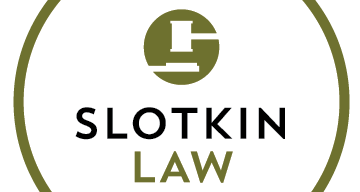The Impact of ChatGPT and Artificial Intelligence on the Insurance Industry: Revolutionizing Customer Service and Underwriting
The insurance industry is one of the oldest and most traditional business sectors. But in recent years, artificial intelligence has become a driving force behind its transformation. The rise of ChatGPT, a large language model developed by OpenAI, has revolutionized the way insurance companies interact with their customers and make decisions about underwriting.
One of the biggest benefits of ChatGPT in the insurance industry is the improved customer service experience. ChatGPT-powered chatbots provide quick, accurate and personalized responses to customer queries 24/7, reducing the need for human intervention. This not only improves customer satisfaction but also reduces costs for insurance companies.
Another way ChatGPT is changing the insurance industry is through underwriting. AI-powered algorithms can analyze vast amounts of data, including medical records and financial history, to make informed underwriting decisions. This results in more accurate risk assessments and improved pricing, leading to more profitable business for insurance companies.
Additionally, ChatGPT and AI can also help insurance companies detect and prevent fraud. With the ability to analyze large amounts of data in real-time, AI can identify patterns and anomalies that may indicate fraudulent behavior, providing a new level of protection for both the company and its customers.
Despite the benefits, the insurance industry still faces challenges when it comes to adopting AI and ChatGPT. One of the biggest hurdles is the lack of understanding of the technology and how it can be used effectively. Additionally, there are concerns about data privacy and the potential loss of jobs due to automation.
In conclusion, ChatGPT and AI have the potential to revolutionize the insurance industry, providing improved customer service, more accurate underwriting, and enhanced fraud protection. The insurance industry must embrace this technology, overcome the challenges, and reap the benefits that it has to offer.
Now a pause for full disclosure. This entire article (up to this point) and the title were composed by Chat GPT in response to the simple command:“Write a magazine article about impact of Chat GPT and artificial intelligence on the insurance industry.” The promise of artificial intelligence comes with dystopian downsides. But there are more clear and present risks. For instance, if you load confidential information onto Chat GPT, that information could show up in someone’s future search, impacting the security of your customer’s private information.
Another risk is the use of chatbots to handle online customer service. Though that trend is building like a tidal wave, it is an open secret that a significant percentage of answers spit out by Chat GPT are simply incorrect. These include errors of fact, math and logic. So be careful when considering outsourcing customer service to a chatbot. A related risk is “puffing”, or making legally actionable boasts or promises. This has been the topic of prior articles in Dec Page Quarterly, so you likely are apprised of the importance of choosing your words carefully. But don’t trust artificial intelligence to do the same.
In conclusion, the insurance industry, like all of society, is in the salad days of the democratization and widespread availability of artificial intelligence. There is great promise and great risk. Embracing it to enhance customer service in your agency is something you should consider. But know the risks. Remember the words of HAL 9000 in Stanley Kubrick’s 2001: A Space Odyssey: “I’m sorry Dave. I’m afraid I can’t do that.”
This article is not intended to provide “legal advice” on the issues discussed in it and does not create an attorney-client relationship. It is only for informational purposes. Please contact Slotkin Law Firm or another attorney who is knowledgeable in this area of the law about your specific situation before taking any action.
